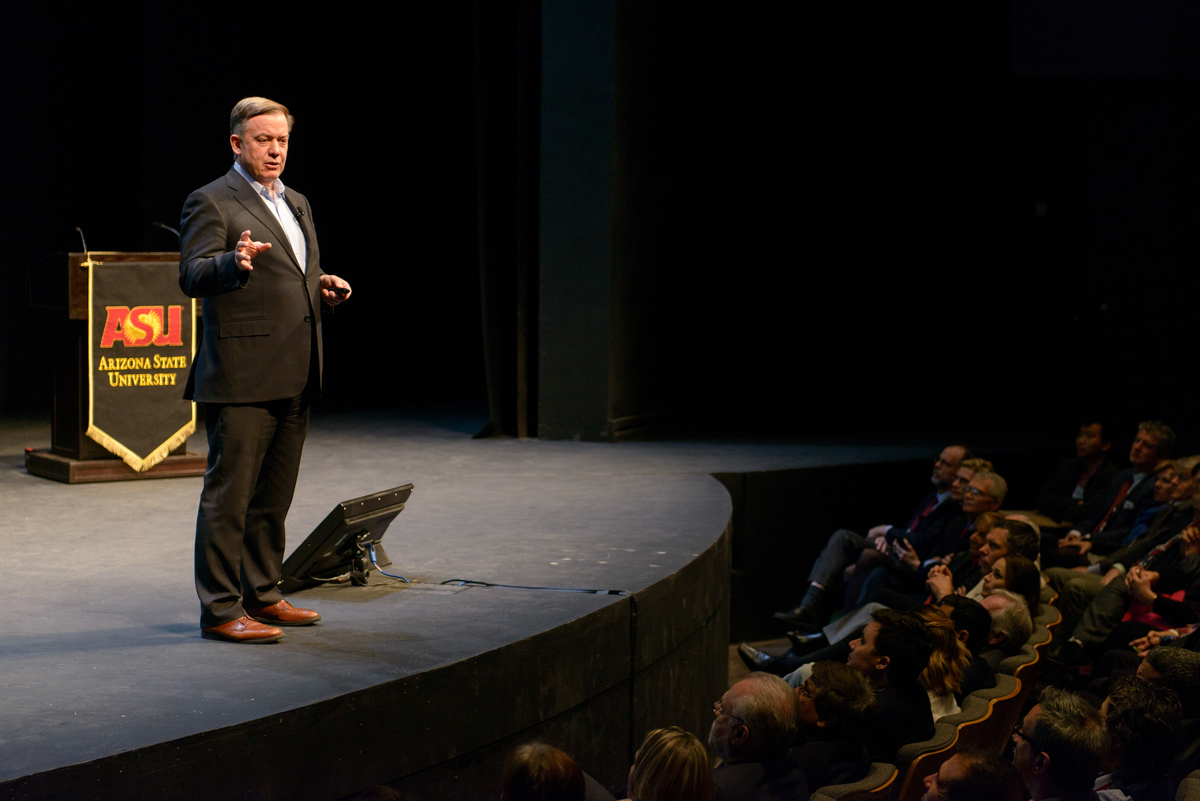ASU's innovation is a benefit for society
President Crow cites university's many achievements in broadening access to college credit
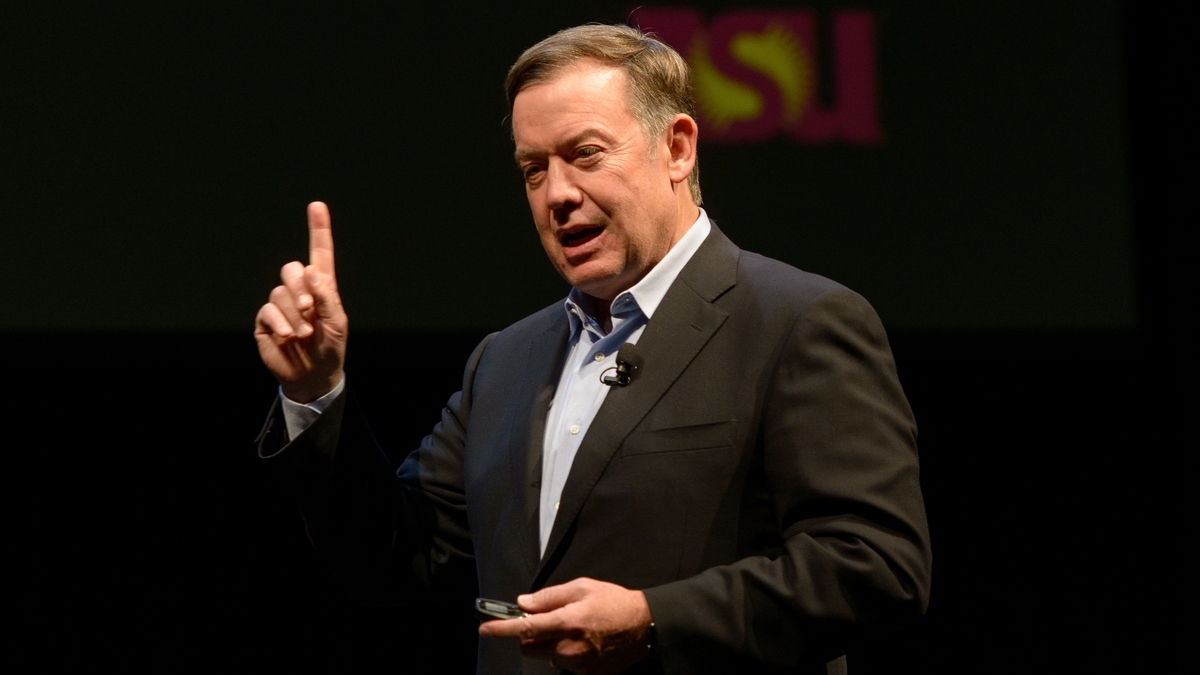
Editor's note: This story is being highlighted in ASU Now's year in review. To read more top stories from 2016, click here.
In his annual address to the community, President Michael M. Crow said that Arizona State University’s innovative mindset requires collaboration and purpose, and it is driven by a responsibility to the community.
“We’re prepared to innovate to be helpful to your family, your business, your hope for your community,” he said.
“We also have public values that we’re protecting, which is to be lower cost and egalitarian in terms of our admission standards.”
Crow made these remarks Wednesday night during his annual Community Conversation at Galvin Playhouse on the Tempe Campus. The dialogue was built around the topic of “What is innovationASU topped the list of “most innovative schools” in the U.S. News and World Report college rankings for 2016 based on a survey of peers. College presidents, provosts and admissions deans around the country nominated up to 10 colleges or universities that are making the most innovative improvements to curriculum, faculty, students, campus life, technology or facilities. ?”
He said that ASU’s innovations show that the United States — itself an innovation in government when it was formed — has unlimited potential.
“In this moment when America needs a model for innovation — we have literally been able to move and innovate at light speed compared to a normal university,” Crow said.
Crow said that it’s difficult for universities to embrace innovation.
“University innovation is like an oxymoronic term. They’re only concerned with their niche,” he said.
ASU’s very model is innovative, Crow said, compared with universities that limit admissions and restrict programs.
“Some universities spend 10 years talking about whether they want to offer a degree program.”
Crow said that ASU rejected the old-fashioned model of university success.
“We were told we needed to raise admission standards, build a medical school and replicate everything everyone else did.” He said the traditional model wasn’t sufficient to meet the state’s needs.
He discussed several ways that ASU has broadened access to university credit, such as the Starbucks College Achievement ProgramThe Starbucks College Achievement Program offers full tuition reimbursement to employees who pursue an online degree through ASU. and the Global Freshmen AcademyThe Global Freshman Academy debuted in the fall semester. Anyone can take online classes and decide after completion whether they want to pay for the ASU credits, which are offered at a rate of $200 per hour.. While the former is open to Starbucks partners around the country and the latter to potential students around the world, they both also can can help Arizonans who want to pursue college credit, he said
“There are a million people in Arizona who started college and never finished,” he said.
ASU President Michael M. Crow addresses the crowd during his 2016 Community Conversation inside the Galvin Playhouse on Tempe campus. Photos by Robin Kiyutelluk/Arizona State University
The public was invited to submit questions via Twitter with the hashtag #AskMichaelCrow. One question was, "What keeps you up at night?"
“Negative political rhetoric,” Crow said.
“People don’t really know what we have inherited — all these educational opportunities and artistic expressions and all the things we’ve got.
“Everyone is talking about how we’re collapsing and the country is not going ahead, and when you look at what we’ve been through, the civil war and the opening of the west, it’s just not the case."
But ASU’s students are not pessimistic, he said.
“When I talk to our kids I don’t get that sense. Maybe my elixir is being with them. They’re filled with this desire to make a difference.”
Another problem that keeps Crow up at night is the notion of fairness and equity.
“We still live in a society that has a lot of outcomes determined by your parents’ income and that’s an unfair thing.
“We need to do anything we can to find that student with talent — the rich kid, the poor kid, the homeless kid, the foster kid.”
More Arts, humanities and education
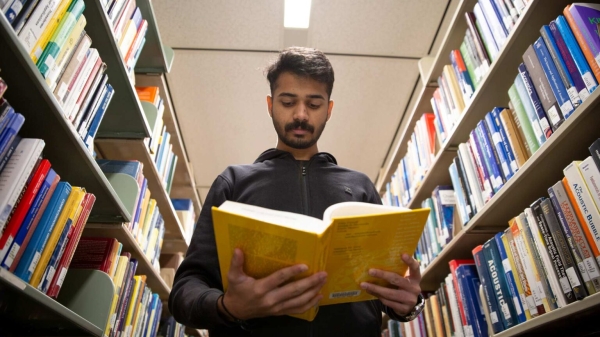
Engineering knowledge: Recommended reading from Fulton Schools faculty, staff
In this 13th edition of the annual Essential Reading feature, 10 more faculty and staff members in the Ira A. Fulton Schools of Engineering at Arizona State University join in carrying on the…
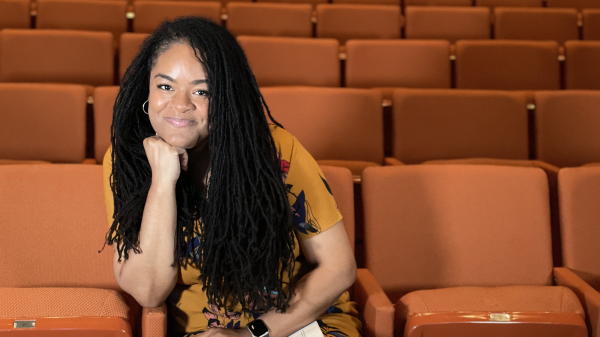
ASU Gammage Scholar and MFA student forges path to her future
Editor’s note: This story is part of a series of profiles of notable spring 2024 graduates. Theater was an escape and an outlet for Crestcencia Ortiz-Barnett as a young girl in Detroit. “I learned…
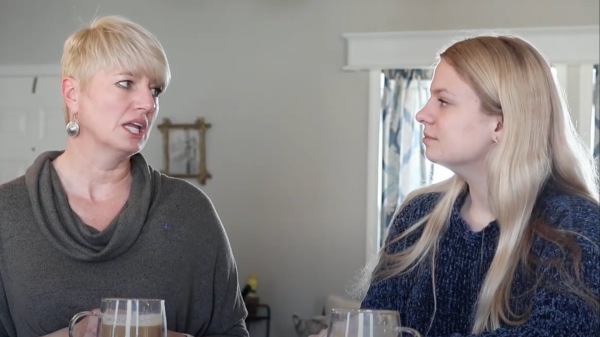
Data science student investigates Arizona education system, reform through Steve Jobs Archive fellowship
Arizona State University student Brinlee Kidd was one of nine people across the U.S. chosen for the inaugural Steve Jobs Archive (SJA) Fellowship, launched last year with the goal of allowing young…
